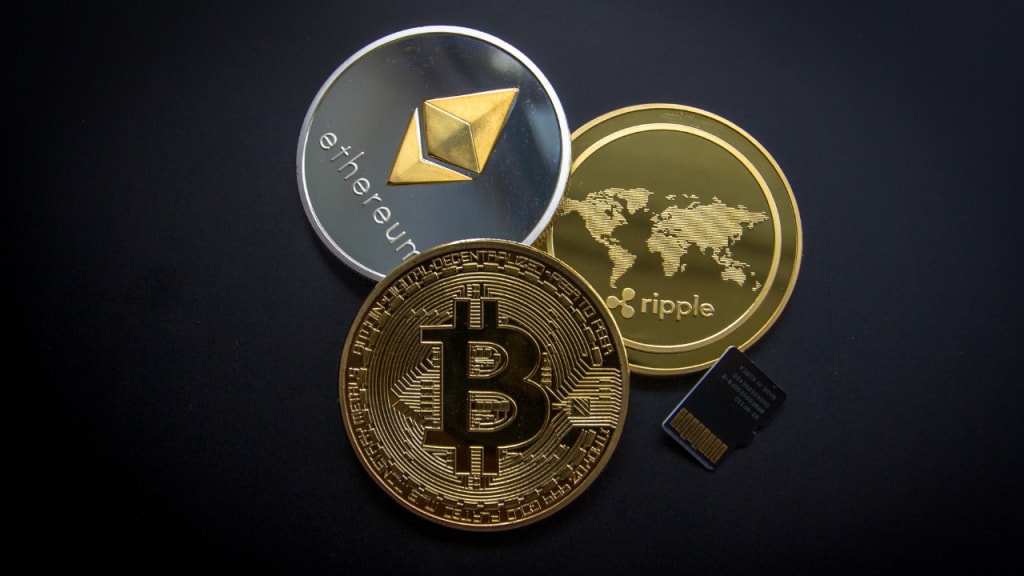What to Understand About Coin and Token
Coins&Tokens

What to Understand About Coin and Token?
If you are reading these lines and are a little bit interested in the cryptocurrency market, you must have heard of Bitcoin. What about Bitcoins? Or Ethereum's Ether? Altcoins? Coin and Token concepts? Many more in the cryptocurrency market, such as the above products and concepts.
There are coins and tokens as well as many other concepts. In this article, I will focus on what coins and tokens are and the differences between them.
Coins and beyond
Coins (also called altcoins or alternative cryptocurrency coins) are digital coins that are created using cryptographic techniques and store value over time. In this context, it means the digital equivalent of money. The most well-known coin example is Bitcoin. Bitcoin is also known as a type of cryptocurrency as it uses cryptography to secure it. There are no physical bitcoins. there are only balances held in a public ledger that is accessible to everyone. All Bitcoin transactions are verified with massive amounts of computing power through a process known as "mining". On the other hand, Bitcoin is not issued or supported by any bank or government. An individual bitcoin is not valuable as a commodity. Bitcoin is often abbreviated as BTC when traded. There are coins Litecoin and Namecoin based on the original protocol of Bitcoin that went public, as well as coins Ripple and Monero, which run on the blockchain created specifically for them.
Another example of a coin is Ethereum's Ether, ETH. ETH is the native coin of the smart contracts platform for building general-purpose computer programs running on a decentralized blockchain. Ethereum does not focus on financial data. Instead, it focuses on random program data, which can cover everything from games to social media. Ether is used to send/receive assets, manage assets, pay gas fees and interact with decentralized applications (dApps) in the network.
Coins have the same characteristics as money: they are exchangeable, divisible, acceptable, portable, durable, and in limited supply.
The main features of the coins are:
1) They are connected to the public blockchain - anyone is allowed to join and participate in the network
2) They can be sent, received or mined
Coins are not intended to perform any function beyond acting as money.
What is the Altcoin?
Since then, thousands of new altcoins or alternative currencies have been created and added to the crypto ecosystem. “Altcoin” refers to any cryptocurrency other than Bitcoin. Ethereum is the most popular altcoin and people use its full name (Ethereum) when talking about the wider blockchain network, but use Ether (ETH) to discuss the currency itself.
According to the price monitoring website CoinMarketCap, there are more than 17,000 types of cryptocurrencies as of February 2022. Bitcoin accounts for almost half of the total crypto market and Ethereum account for almost a quarter. Altcoins occupy the remaining market share (roughly 40%).
This means that there are literally thousands of other coins exchanged in the metadata store. Let's take a closer look at what altcoins are and why experts say most investors should switch to anything other than Bitcoin and Ethereum.
The term “altcoin” is shorthand for “alternative coins” and simply means cryptocurrencies other than Bitcoin. After Bitcoin, the nine most popular cryptocurrencies are as follows:
- Ethereum
- XRP
- Tether
- Cardano
- Polkadot
- Stellar
- USD Coins
- Dogecoin
- Chainlink
- Uniswap
Experts point out that Bitcoin is highly speculative and altcoins are even more speculative. Ethereum, the most heard altcoin, has grown significantly since its 2015 launch thanks to its smart contract capabilities and the popularity of digital art known as immutable tokens (NFTs).
Is Token a different type of Coin?
Tokens are shaped around a specific project. Tokens are used as a payment method in the project ecosystem. However, they are digital assets that perform similar functions to coins. But the main difference is that it also gives the owner the right to join the network. Tokens can represent a share of a company, provide access to the functionality of the project and much more - with the launch of new projects unknown aspects of tokens are discovered.
Digital tokens are similar to each other. Only certain projects have certain use cases.
Tokens represent an asset or utility. This is why security and utility tokens are distinguished. Security tokens are designed to be the share of the company. Tokens occupy a unique corner of the cryptocurrency market where they act as “useful” tokens in an app's ecosystem to incentivize certain behaviours or pay fees. For example, the Fitlich app, which earns you tokens by burning calories.
Generating a token is easier than generating a token, as you don't have to create a new code or modify an existing one. Just use a standard template from blockchain-based platforms like Ethereum that allows anyone to create tokens. just a few steps. Using a template to generate tokens ensures seamless interoperability. So, users can store different token types in a single wallet. Ethereum was the first platform to simplify the token generation process.
Conclusion
Tokens are just a payment method. Shares are projected in the white paper of a company or company project. With token redemption, users can access the product or service and perform many other functions (such as STEPN and Fitlich app). Coins are currencies that can be used to buy and sell things. You can buy tokens with a coin, but not vice versa. While the coin works independently due to its working principle, the token has a specific use in the project ecosystem.






Comments
There are no comments for this story
Be the first to respond and start the conversation.